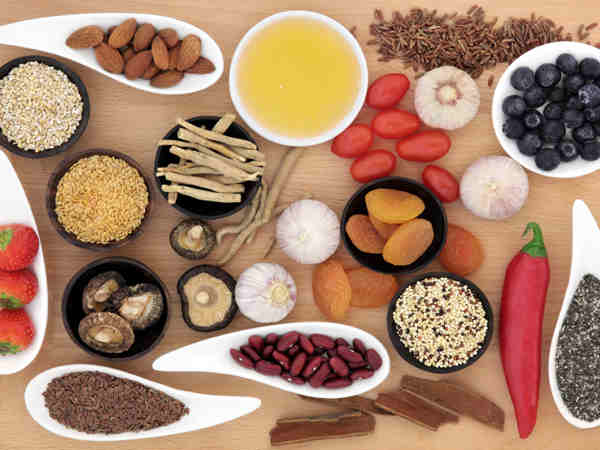
Essential Nutrients for Women while Cutting Calori
Sharon Denny, MS, RDN
Published September 30, 2015
Healthy weight management is all about energy balance. That means eating smarter and moving more. Unfortunately, when trying to lose weight, many busy people tend to limit some of the very foods they need the most. Here are some tasty ways to get the essential energizing nutrients your body craves and to cut back on unnecessary calories at the same time.
Carbohydrates
The biggest problem with low-carb diets is they restrict your body's preferred energy source. If you want to cut back on calories from carbohydrates, focus on reducing your intake of sugar-sweetened beverages such as soft drinks, candy and other foods with added sugars. To maximize your energy level and long-term health, look to nutrient-rich carbohydrate sources such as whole grains, fruits, vegetables, beans and peas.
Protein
One of the most satisfying ways to eat and control weight is to include lean protein in every meal. Try low-fat dairy foods, eggs, lean meats, poultry, seafood, nuts and beans. Protein may be especially helpful in the morning. Add some protein to breakfast and you'll probably be satisfied until lunchtime. Chances are you won't be as tempted by all those high-fat, sugary mid-morning snacks.
Iron
Low iron intakes can lead to serious problems such as iron-deficiency anemia, the most common nutrient deficiency for premenopausal women and children. To prevent anemia and fatigue, women between the ages of 19 and 50 should get 18 milligrams of iron per day. Pump up your intake with excellent iron sources, such as lean red meat and iron-fortified cereals. Other good sources include poultry, fish, beans and leafy green vegetables. When relying on plant foods for iron, consume a source of vitamin C, such a strawberries or tomatoes, with the iron-rich food to help your body absorb the iron.
Calcium
Calcium does a lot more than help build strong bones and teeth. Getting enough calcium helps keep your heart and muscles strong and may help prevent high blood pressure and colon cancer too. Those are plenty of reasons to enjoy high-calcium foods, such as low-fat dairy; calcium-set tofu; green leafy vegetables including kale, collard greens and broccoli; and calcium-fortified 100-percent fruit juice. Aim for at least 1,000 milligrams per day (more if you are younger than 18 or older than 50).
Folic Acid
Every woman of childbearing age needs 400 micrograms of folic acid every day. That's what it takes to reduce the risk of neural tube birth defects by 75 percent. Folic acid can also boost your immune function by producing disease-fighting white blood cells. Get your folic acid from tasty, nutrient-rich foods, such as whole grains, green leafy vegetables, oranges, berries, nuts, beans and enriched grain products.